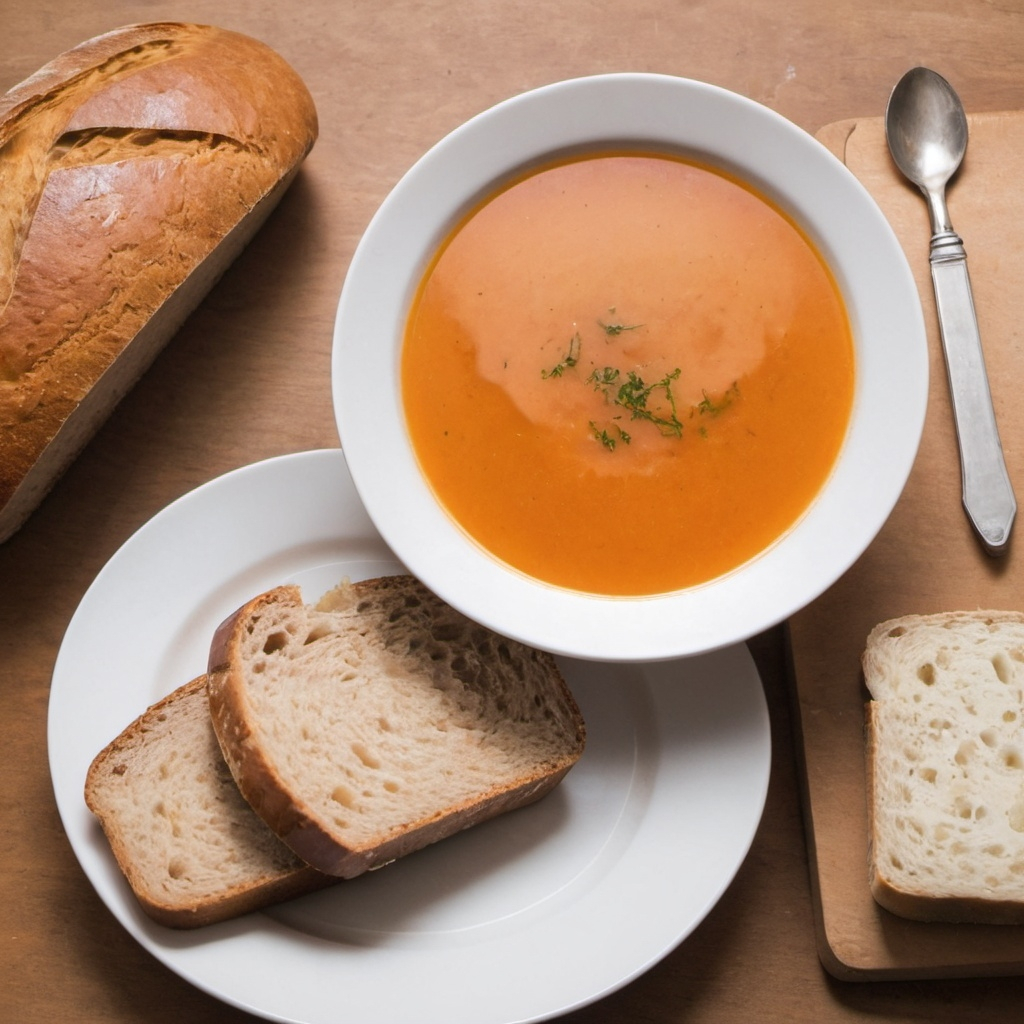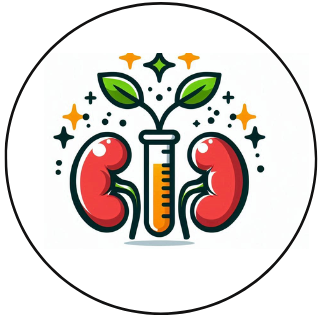
The Impact of Gluten on Kidney Health: Understanding the Risks and Protection Strategies
Gluten, a protein found in wheat, barley, rye, and several other grains has become a topic of concern for many, particularly those with celiac disease or gluten sensitivities. While the effects of gluten on the digestive system are well-documented, its impact on other organs, such as the kidneys, is less commonly discussed. In this blog post, we’ll explore how gluten can affect kidney health, particularly for those with gluten-related disorders, and provide strategies to protect your kidneys.
Understanding Gluten and Its Effects on the Body
Celiac Disease and Gluten Sensitivity
Celiac disease is an autoimmune disorder where the ingestion of gluten leads to damage in the small intestine. When someone with celiac disease consumes gluten, their immune system attacks the villi, tiny finger-like projections in the small intestine that help absorb nutrients. This damage impairs nutrient absorption, leading to various health issues, including malnutrition, anemia, and osteoporosis.
Non-celiac gluten sensitivity (NCGS) is a condition where individuals experience symptoms similar to those of celiac disease, such as bloating, diarrhea, and abdominal pain, but without the autoimmune response or intestinal damage seen in celiac disease. However, NCGS can still cause significant discomfort and other systemic issues.
How Gluten Affects Kidney Health
The kidneys are vital organs responsible for filtering waste products and excess fluids from the blood. When they become compromised, it can lead to serious health issues, including chronic kidney disease (CKD) and, in severe cases, kidney failure.
1. Celiac Disease and Kidney Damage
Research suggests that celiac disease may be associated with an increased risk of developing kidney disorders, including IgA nephropathy (Berger’s disease), a condition characterized by the deposition of the antibody immunoglobulin A (IgA) in the kidneys. These deposits can lead to inflammation and scarring, which impairs the kidneys’ ability to filter blood properly.
The connection between celiac disease and kidney damage is believed to be related to chronic inflammation and immune dysregulation. When gluten is consumed, the immune system in individuals with celiac disease becomes hyperactive, potentially causing damage to various organs, including the kidneys.
2. Gluten Sensitivity and Kidney Function
While non-celiac gluten sensitivity does not cause the same autoimmune response as celiac disease, it can still lead to chronic inflammation in the body. Chronic inflammation is a known risk factor for many diseases, including kidney disease. Over time, persistent inflammation may contribute to a decline in kidney function, especially in individuals with other risk factors for kidney disease.
Strategies to Protect Kidney Health
Whether you have celiac disease, gluten sensitivity, or are concerned about kidney health in general, there are several strategies you can implement to protect your kidneys:
1. Follow a Strict Gluten-Free Diet
For individuals with celiac disease or gluten sensitivity, the most important step is to avoid gluten entirely. This means eliminating all sources of gluten from your diet. By doing so, you reduce the risk of triggering an immune response or inflammation that could harm your kidneys.
2. Monitor Kidney Function Regularly
If you have celiac disease or gluten sensitivity, it’s essential to monitor your kidney function regularly. This can be done through blood tests that measure creatinine and glomerular filtration rate (GFR), which indicate how well your kidneys are filtering blood.
Proper hydration is crucial for maintaining kidney health. Drinking enough water helps your kidneys efficiently filter waste from your blood and prevents the formation of kidney stones. Aim to drink at least 8-10 glasses of water per day, or more if you are active or live in a hot climate.
4. Maintain a Balanced Diet
In addition to avoiding gluten, it’s important to maintain a balanced diet rich in fruits, vegetables, lean proteins, and whole grains that do not contain gluten, such as quinoa, rice, and corn. These foods provide essential nutrients that support overall health and reduce the risk of kidney disease. Know what to avoid.
5. Manage Blood Pressure and Blood Sugar Levels
High blood pressure and diabetes are two leading causes of kidney disease. If you have celiac disease or gluten sensitivity, managing these conditions is vital. Regular exercise, a healthy diet, and medication if prescribed by your doctor can help control blood pressure and blood sugar levels, reducing the strain on your kidneys.
6. Avoid Excessive Use of Pain Relievers
Nonsteroidal anti-inflammatory drugs (NSAIDs), such as ibuprofen and naproxen, can harm the kidneys, especially when used frequently or in high doses. If you have celiac disease or gluten sensitivity, it’s important to be mindful of your pain reliever use and explore alternative options for managing pain.
7. Consider Supplements Carefully
Some individuals with celiac disease may be deficient in certain nutrients, such as iron, calcium, and vitamin D, due to malabsorption. However, it’s important to consult with a healthcare provider before starting any supplements, as some may affect kidney function. Your doctor can recommend the appropriate dosage and monitor your kidney health.
8. Other Gluten Sources
1. Spelt
- What is it? Spelt is an ancient grain that is a subspecies of wheat. It’s often considered more nutritious than modern wheat but still contains gluten.
- Uses: Spelt is used in bread, pasta, and baked goods. It’s often found in products marketed as more “wholesome” or “ancient grain” foods.
2. Kamut (Khorasan Wheat)
- What is it? Kamut is another ancient wheat variety. It’s larger than modern wheat grains and has a slightly different flavor but still contains gluten.
- Uses: It’s often used in specialty bread, pasta, and cereals.
3. Triticale
- What is it? Triticale is a hybrid grain created by crossing wheat and rye. It contains gluten from both parent grains.
- Uses: It’s commonly used in bread, cereals, and animal feed.
4. Farro (Emmer)
- What is it? Farro is an ancient grain and a type of hulled wheat. It contains gluten and is often confused with other grains like spelt and barley.
- Uses: Farro is popular in salads, soups, and risottos.
5. Einkorn
- What is it? Einkorn is considered the oldest form of wheat and is sometimes marketed as a healthier alternative to modern wheat.
- Uses: It’s used in various baked goods and is often promoted as an ancient grain.
6. Barley
- What is it? Barley is one of the main sources of gluten and is commonly used in brewing beer, as well as in soups, stews, and cereals.
- Uses: Apart from brewing, barley is used in malt, flour, and as a whole grain in various dishes.
7. Rye
- What is it? Rye is another grain that contains gluten. It has a distinctive, hearty flavor and is often used in bread and whiskey production.
- Uses: Rye is most commonly used in rye bread (such as pumpernickel), crackers, and some alcoholic beverages.
Hidden Sources of Gluten:
Gluten can also be found in processed foods where you might not expect it, such as:
- Processed meats: Some sausages, hot dogs, and deli meats use gluten as a filler or binder.
- Sauces and dressings: Gluten is sometimes used as a thickener in gravies, sauces, and salad dressings.
- Condiments: Soy sauce, malt vinegar, and some mustards can contain gluten.
- Snacks: Many chips, crackers, and even some candy may have gluten.
- Beverages: Some beers, malted milk, and certain flavored beverages might contain gluten.
For those with celiac disease or gluten sensitivity, it’s crucial to read labels carefully and be aware of these hidden sources of gluten. When in doubt, look for products labeled as “gluten-free,” which are regulated to contain less than 20 parts per million (ppm) of gluten, a level generally considered safe for most people with celiac disease.
Conclusion
Gluten can have far-reaching effects on the body, particularly for those with celiac disease or gluten sensitivity. While the digestive system is the primary area affected, the kidneys can also be at risk due to chronic inflammation and immune responses triggered by gluten consumption. By understanding the risks and taking proactive steps, such as following a strict gluten-free diet and monitoring kidney function, you can protect your kidneys and maintain overall health.
Remember, if you suspect you have celiac disease or gluten sensitivity, consult with a healthcare professional for proper diagnosis and guidance on managing your condition to safeguard your kidney health and overall well-being.
Some links in this article are affiliate links. Any purchase through these links may provide kidneyfreshfuel.com with a small commission. This will not add any cost to you. However, it will allow us to continue to provide you with quality kidney information.
